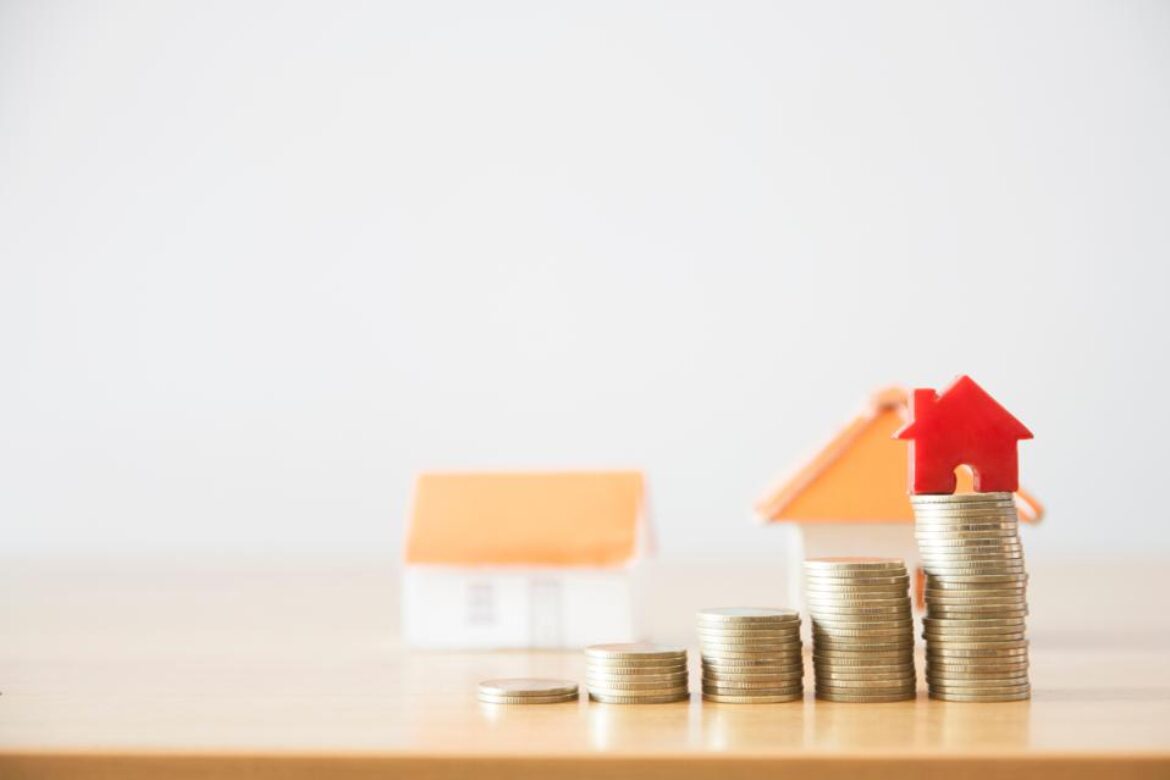I’ve had the privilege of witnessing firsthand the pivotal role that the real estate sector plays in driving economic growth. Real estate isn’t just about buying and selling properties; it’s a dynamic force that shapes communities, influences investments, and contributes significantly to a nation’s prosperity. In this essay, I’ll delve into the multifaceted ways in which real estate contributes to economic growth, from its impact on job creation and wealth generation to its role in urban development and infrastructure improvement.
Best Real Estate Agency in Islamabad
Connector is a real estate agency located in Islamabad with a broad and premium real estate offer in Islamabad and the Islamabad region. Our company was established in 2019 and had been operating successfully ever since. Connector represents an energetic and contemporary future in real estate services. Connector is a real estate service provider and seller.
ConnectorPk allows you to connect with us and allows us to help you to invest in safe hands. We make sure that your investments are at the right place and at the right time. We are making your investment trouble-free with an easy installment plan who are worried about paying the whole amount at once. Connector offers residential and commercial properties, with this type of real estate business in Islamabad that might be available for sale, shopping for, or renting functions.
1. Job Creation and Employment Generation:
One of the most obvious and immediate impacts of the real estate sector on economic growth is job creation. Real estate activities encompass a vast spectrum, including construction, property management, architecture, interior design, and real estate finance, among others. These diverse segments collectively employ millions of individuals worldwide.
In the construction industry alone, the demand for labor and skilled workers is relentless. From carpenters and masons to architects and engineers, real estate development projects require a broad range of professionals. The ripple effect extends to suppliers of building materials, transportation services, and various ancillary businesses. This employment web helps reduce unemployment rates and drives economic stability within a region.
2. Wealth Generation and Investment:
Real estate is often touted as a tangible asset class that enables individuals to build wealth over time. Property ownership and investment in real estate properties, such as residential homes, commercial spaces, and rental properties, offer a means of capital appreciation and passive income. This wealth generation is a driving force behind consumer spending and economic growth.
When individuals invest in real estate, they often renovate or improve properties, stimulating additional economic activity. These improvements, from simple repairs to large-scale renovations, require contracting services, purchase of building materials, and the employment of skilled labor. Consequently, real estate investment not only generates personal wealth but also stimulates economic growth through associated industries.
3. Contribution to GDP:
The real estate sector significantly contributes to a nation’s Gross Domestic Product (GDP). It encompasses not only residential and commercial properties but also infrastructure projects, such as roads, bridges, and airports. The construction of these critical public assets is funded by both public and private sectors and has a direct impact on GDP growth.
In addition to the construction phase, real estate assets continually generate revenue through property taxes, rent, and lease income. This ongoing stream of income contributes to the overall economic health of a region. As the value of properties appreciates, property tax revenues increase, providing local governments with the means to invest in public services and infrastructure, further boosting economic growth.
4. Urban Development and Infrastructure Improvement:
Real estate development is intricately linked to urbanization. The expansion and development of urban areas often depend on the real estate sector’s capacity to provide housing, commercial spaces, and infrastructure. As cities grow and evolve, they become hubs of economic activity, attracting businesses and individuals seeking employment opportunities and a better quality of life.
Infrastructure projects, such as the construction of highways, airports, and public transportation systems, are essential for urban development. Real estate developers frequently collaborate with governments to fund and execute such projects. The resulting improvements in connectivity and accessibility enhance the overall business environment and attract further investments, thus spurring economic growth.
5. Economic Resilience and Stability:
The real estate sector’s influence on economic growth extends to its role in stabilizing economies during periods of uncertainty. Historically, real estate has proven to be a resilient asset class that can weather economic downturns. During times of recession, investors often turn to real estate as a safe haven for capital preservation, thereby providing stability to financial markets.
Moreover, the real estate sector tends to exhibit cyclical behavior. When other sectors of the economy are sluggish, real estate can remain active, helping to offset broader economic contractions. This counter-cyclical nature makes real estate an essential component of economic resilience.
6. Impact on Local Businesses:
Local businesses benefit immensely from the presence of a thriving real estate market. As neighborhoods and commercial districts develop, small businesses find new customers and opportunities for growth. The influx of residents and businesses creates a vibrant local economy, encouraging entrepreneurship and innovation.
Additionally, retail spaces within mixed-use developments provide platforms for small businesses to establish a presence. These businesses often serve as anchors for local communities, drawing foot traffic and enhancing the overall desirability of the area.
7. Housing as a Basic Need:
Housing is a fundamental human need, and the real estate sector plays a vital role in meeting this need. Adequate and affordable housing is essential for workforce stability and productivity. When individuals have access to secure and affordable housing, they are better able to focus on their careers, education, and personal well-being, all of which contribute to economic growth.
Efforts to address housing affordability and accessibility, such as government-subsidized housing initiatives and incentives for affordable housing development, can have a profound impact on the overall economic health of a nation.
8. Foreign Direct Investment (FDI):
The real estate sector also attracts foreign direct investment (FDI), which bolsters economic growth. Investors from abroad seek opportunities in real estate markets with favorable conditions. These investments inject capital into the economy, fund development projects, and create jobs.
In many cases, FDI in real estate can lead to technology transfer, knowledge exchange, and best practices in construction and property management. This infusion of expertise can enhance the local real estate industry’s capabilities and competitiveness on a global scale.
9. Tourism and Hospitality:
Tourism is another sector closely tied to real estate and economic growth. Tourist destinations often rely on real estate development to create attractive accommodations and entertainment facilities. The revenue generated from tourism not only boosts the local economy but also contributes to the national GDP.
Additionally, the hospitality industry, which includes hotels, resorts, and vacation rentals, relies heavily on the real estate sector. These establishments provide jobs, generate revenue, and contribute to the overall appeal of a region as a tourist destination.
10. Environmental Considerations:
In recent years, there has been a growing awareness of the environmental impact of real estate development. Sustainable and environmentally friendly building practices are becoming more prevalent. These practices not only reduce the carbon footprint but also create opportunities for green technology and renewable energy industries to thrive, further contributing to economic growth.
Conclusion
In conclusion, the role of real estate in economic growth is multifaceted and profound. It goes beyond the mere buying and selling of properties to encompass job creation, wealth generation, infrastructure development, and the overall enhancement of living and working environments. As a real estate agent, I’ve witnessed the transformative power of this sector in shaping communities and driving economic prosperity. It’s clear that a vibrant and sustainable real estate market is essential for a nation’s continued growth and development.


Comments (0)